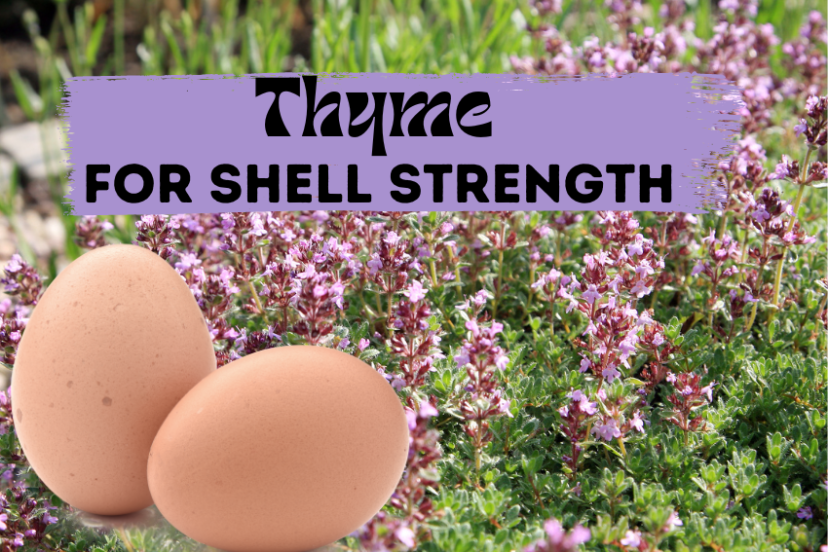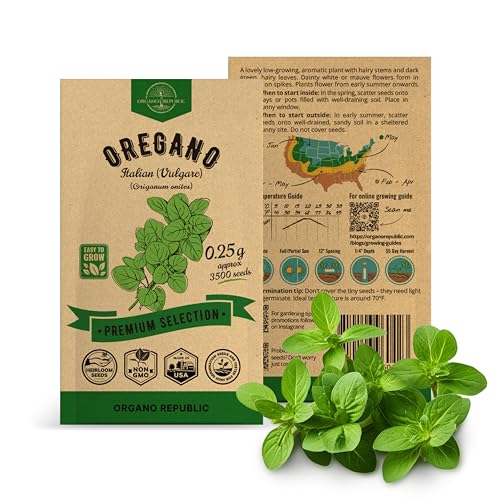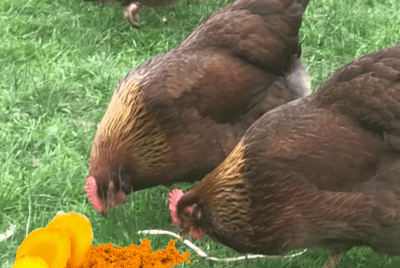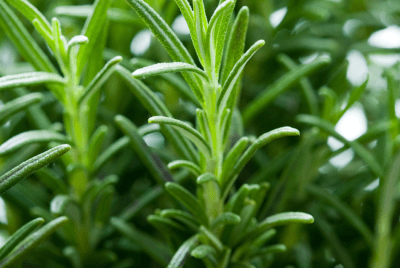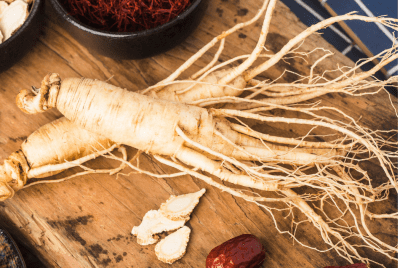Can Chickens Eat Thyme?
Can chickens eat thyme? You can boost the quality and strength of your chicken’s eggs by incorporating thyme into their environment. This simple addition can have significant benefits for your flock’s health and the eggs they produce. Learn how this natural solution can improve your coop’s egg-laying potential.
Key Takeaways:
- Thyme Benefits: Thyme is a natural herb that can improve egg quality and strengthen shells in your coop.
- Rich in Nutrients: Thyme is packed with necessary nutrients like vitamins, minerals, and antioxidants that can benefit your hens.
- Easy to Use: You can easily incorporate thyme into your hens’ diet by adding it to their feed or water.
- Antibacterial Properties: Thyme’s antibacterial properties can help keep your coop clean and prevent infections in your flock.
- Natural Solution: Using thyme as a supplement in your coop is a natural and safe way to enhance the health of your hens and the quality of their eggs.
The Importance of Egg Quality and Shell Strength
A crucial aspect of keeping a healthy and productive flock of chickens is ensuring the quality of the eggs they produce. High-quality eggs not only provide necessary nutrients for us but also serve as an indicator of the well-being of your chickens. One key factor that contributes to egg quality is the strength of the shell.
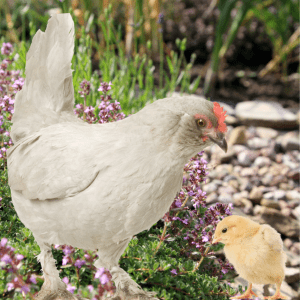
Can Chickens Eat Thyme & Why Strong Shells Matter
Shells that are firm and robust are necessary for protecting the delicate contents of the egg, preventing breakage during collection, storage, and transportation. Additionally, strong shells are vital for maintaining the freshness and quality of the egg, reducing the risk of contamination. A hen that consistently lays eggs with sturdy shells is likely to be healthier and better nourished, which ultimately leads to more productive laying.
The Impact of Weak Shells on Your Flock
Your flock can suffer greatly if the majority of eggs produced have weak shells. Eggs with fragile shells are more prone to breakage, resulting in potential loss of nutrients and an increased risk of contamination. Moreover, hens that continuously lay eggs with thin or cracked shells may be experiencing nutritional deficiencies or health issues that need to be addressed promptly.
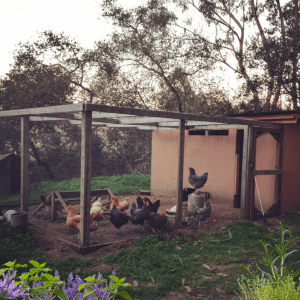
Impact: It is crucial to monitor the quality of eggshells in your flock regularly and take necessary steps to address any issues that may arise. Weak shells can not only impact the health and productivity of your chickens but also increase the likelihood of egg spoilage and potential health risks for consumers. By maintaining strong and healthy eggshells, you are not only enhancing the well-being of your flock but also ensuring a superior product for your consumption or sale.
Thyme: A Natural Solution for Enhanced Egg Quality
While thyme is commonly known as a culinary herb adding flavor to dishes, its benefits go beyond the kitchen. In the matter of raising backyard chickens, thyme can be a natural solution for enhancing egg quality and shell strength. By incorporating thyme into your coop, you can support your hens’ health and improve the overall quality of the eggs they produce.
The Science Behind Thyme’s Benefits
The use of thyme in poultry has been studied for its potential benefits on egg quality and shell strength. Thyme contains crucial oils and compounds that have antioxidant and antimicrobial properties, which can help improve overall egg production and quality. These natural components in thyme may contribute to a healthier environment for egg formation within the hen.
How Thyme Supports Hen Health
Enhanced egg quality isn’t the only benefit of adding thyme to your chicken coop. Thyme can also support your hens’ health in various ways. Thyme has been recognized for its anti-inflammatory and immune-boosting properties, which can help keep your flock healthy and resilient. By incorporating thyme into their environment, you may be helping to prevent common health issues that can arise in poultry.
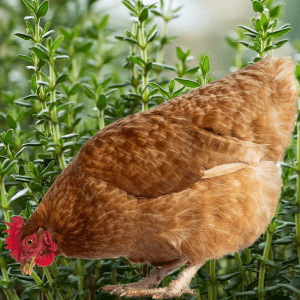
Solution: By incorporating thyme into your coop, you are not only enhancing the overall quality of the eggs your hens produce but also supporting their health and well-being. The natural properties of thyme can provide a holistic approach to poultry care, promoting stronger shells, healthier hens, and ultimately, better eggs for you and your family to enjoy.
Adding Thyme to Your Coop
Once again, we turn to the power of nature to enhance the environment for our feathered friends. Thyme, a fragrant herb known for its medicinal properties and culinary uses, can also benefit your chickens by improving their egg quality and shell strength. By introducing thyme to your coop, you can create a healthier setting that promotes the well-being of your flock.
Methods for Incorporating Thyme
One effective way to introduce thyme to your coop is by planting it directly in your chicken run or coop area. This will not only provide a natural source of thyme for your chickens to peck at but also add a touch of greenery to their living space. Additionally, you can dry thyme leaves and sprinkle them in the coop bedding for a continuous release of its beneficial properties.
Tips for Effective Thyme Distribution
For optimal results, ensure that the thyme is easily accessible to your chickens by scattering it in various areas of the coop.
- Thyme leaves can be placed in feeding areas, nesting boxes, and dust baths to encourage your chickens to interact with the herb.
- Regularly replenish the thyme to maintain its potency and effectiveness over time.
- Monitor your chickens to observe if they are showing any preference for the thyme, and adjust the distribution accordingly.
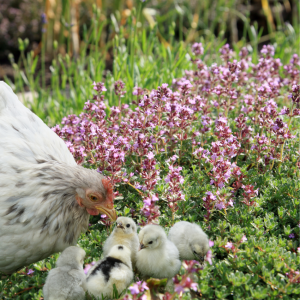
Any excess thyme can be composted or used in cooking, making it a sustainable addition to your chicken keeping routine.
With the thoughtful incorporation of thyme into your coop, you can provide your chickens with a natural boost to their health and well-being. By following these methods and tips, you can create a harmonious environment where your chickens can thrive and lay eggs with enhanced quality and strength.
The Benefits of Thyme for Egg Laying Hens
Improved Egg Quality
To enhance egg quality, consider incorporating thyme into your hen’s diet. Thyme is a powerhouse herb that can benefit your hens in numerous ways. Thyme contains imperative nutrients like Vitamin A, Vitamin C, and manganese, which are crucial for maintaining healthy reproductive systems in hens. These nutrients can help regulate hormone production and support overall egg production.
Thyme also possesses antioxidant properties that can protect the delicate reproductive cells of your hens from oxidative stress. By reducing oxidative damage, thyme can enhance the quality of eggs produced by your flock, resulting in eggs that are not only more nutritious but also visually appeali
Increased Shell Strength
An increase in shell strength is crucial for protecting the precious contents of the eggs laid by your hens. Thyme contains compounds that can bolster the structural integrity of eggshells, making them less prone to cracking or breaking. By adding thyme to your hen’s diet, you can help ensure that the eggs laid by your flock have robust shells that can withstand handling and transportation.
Strength is key when it comes to eggshell quality, as fragile shells can lead to bacterial contamination and loss of imperative nutrients. By fortifying your hens’ eggshells with thyme, you can contribute to the overall health and safety of your flock while also improving the marketability of your eggs.
Enhanced Hen Health
Improved hen health is paramount for a thriving flock, and thyme can play a significant role in enhancing the well-being of your feathered friends. Thyme’s antimicrobial properties can help combat common pathogens that may affect your hens, reducing the risk of infections and illnesses.
Benefits of thyme for hen health extend beyond just physical wellness. The calming aroma of thyme can also reduce stress levels in your flock, promoting a harmonious coop environment that is conducive to optimal egg production.
Combining Thyme with Other Natural Solutions
Pairing Thyme with Oregano for Added Benefits
To enhance the health of your flock, consider pairing thyme with oregano for added benefits. Thyme and oregano both contain powerful antioxidants and antimicrobial properties that can support the immune system of your chickens. By incorporating both herbs into your flock’s diet or coop environment, you can provide a natural boost to their overall wellness.
Using Thyme in Conjunction with Apple Cider Vinegar
Conjunction Thyme can be an effective solution when used in conjunction with apple cider vinegar. Thyme can help improve egg quality and shell strength, while apple cider vinegar is known for its digestive benefits and ability to create a healthy gut environment for chickens. When combined, these two natural remedies can enhance the overall health and well-being of your flock.
Thyme and apple cider vinegar can be easily added to your chicken’s water or feed for convenient daily supplementation. It is important to use high-quality ingredients and monitor your flock’s response to ensure they are benefiting from this natural combination.
Common Questions and Concerns
How Much Thyme Do I Need?
After learning about the benefits of incorporating thyme into your coop for enhancing egg quality and shell strength, you might be wondering how much thyme you actually need to see results. The amount of thyme to use can vary depending on the size of your flock and the frequency of egg production. A general guideline is to sprinkle a small amount of dried thyme over your chickens’ feed a few times a week, or to add fresh thyme to their water source. Observing changes in the quality of the eggs can help you adjust the amount of thyme accordingly.
Will Thyme Affect the Taste of My Eggs?
Common concerns about incorporating thyme into your chickens’ diet are whether it will affect the taste of the eggs. Will thyme give the eggs a strong flavor? The good news is that using thyme in moderation is unlikely to alter the taste of the eggs significantly. In fact, many chicken owners report no noticeable difference in taste when thyme is added to their chickens’ diet.
The key is to use thyme sparingly and monitor your chickens’ response to it. If you are worried about the taste, you can start with a small amount and gradually increase it while observing any changes in egg flavor.
Can Chickens Eat Thyme and can I Use Thyme with Other Herbs?
The question of whether you can use thyme in conjunction with other herbs in your coop is a common one among chicken keepers. With proper research and caution, you can experiment with combinations of thyme and other herbs like oregano, parsley, or basil. These herbs can complement each other and provide a variety of benefits to your flock. However, it is necessary to introduce new herbs gradually and monitor your chickens’ response to ensure they are not overwhelmed by the new additions to their diet.
Final Words on Can Chickens Eat Thyme
With this in mind, it is clear that incorporating thyme into your chicken’s diet can provide numerous benefits, including enhancing egg quality and shell strength. Thyme’s antibacterial properties can help improve the overall health of your flock, resulting in healthier and stronger eggs. By adding this simple yet effective herb to their feed or allowing them to forage for it in your yard, you can support your chickens’ well-being and ultimately enjoy higher quality eggs. Consider introducing thyme to your coop today and reap the rewards of healthier, more robust eggs!
FAQ’s about Can Chickens Eat Thyme
Q: Can Chickens Eat Thyme? Why should I consider using thyme in my coop to enhance egg quality and shell strength?
A: Thyme is a natural herb that contains necessary nutrients and antioxidants that can benefit the overall health of your chickens. When added to their diet, thyme can help improve the quality of eggs by providing important nutrients and aiding in shell strength.
Q: How can I incorporate thyme into my chickens’ diet?
A: Thyme can be easily added to your chickens’ diet by mixing it with their feed or sprinkling it in their coop. You can also feed them fresh thyme leaves or add dried thyme to their treats. Be sure to introduce it gradually to allow your chickens to adjust to the new flavor.
Q: Can Chickens Eat Thyme? Let’s see!
A: Thyme is rich in nutrients such as vitamin K, vitamin C, iron, and manganese, which are necessary for maintaining the health of chickens and ensuring strong eggshells. These nutrients can help prevent deficiencies that may affect egg quality.
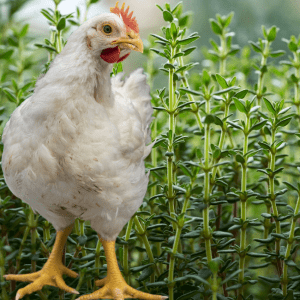
Q: Are there any other benefits of using thyme in the chicken coop?
A: Yes, in addition to enhancing egg quality and shell strength, thyme has natural antibacterial and antiparasitic properties that can help improve the overall health of your chickens. It can also act as a natural insect repellent, keeping pests away from your coop.
Q: Are there any precautions I should take when using thyme in my chicken coop?
A: While thyme is generally safe for chickens, it’s important to introduce it gradually and monitor your chickens for any signs of allergies or sensitivities. Consult with a veterinarian or poultry expert before making any significant changes to your chickens’ diet.

